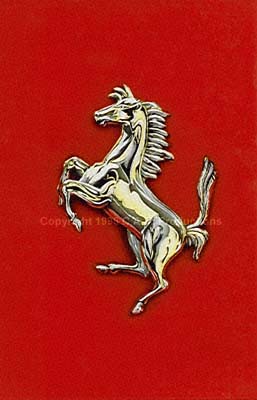Great Moments From Cinema - 36
Gonna Fly Now
Movie: Rocky (UA-USA; 1976)
Director: John G. Avildsen
Screenplay: Sylvester Stallone
Major Cast: Sylvester Stallone, Talia Shire, Burt Young, Burgess Meredith and Carl Weathers
Film Synopsis: Stallone plays a “has-been” boxer who gets a second chance at glory when he is picked by the champ as a novelty world championship opponent.
My Favorite Moment: Stallone preparing for the fight with a run through the streets of Philadelphia at dawn.
Why I Like It: This is one of the most uplifting and feel-good movies of all time. It has been called one of the best sports films but it is really much more than that. The movie is not about a man’s passion towards boxing and a burning desire to be the best, but rather a look at someone who fights so as to earn a living. Even when he gets his shot at the title, all ‘Rocky’ wants to do is “go the distance”.
This scene is a clichéd one which has been seen in hundreds of other sports films. A person getting up at dawn and then training to the point of exhaustion is something, which never fails to inspire the audience. But very seldom do we actually get involved, for in most cases, the outcome is a foregone conclusion. However this time we are not cheering for ‘Rocky’ the sportsman, but ‘Rocky’ the person whom we have grown to care about. ‘Rocky’ starts his pre-dawn run through his modest neighborhood, and then builds up speed as he passes through the docks and finally culminates into a triumphant wave as he sprints up the steps of the Philadelphia art museum. All of this happens to the background tune of “Gonna fly now”. As he gets pumped and jumps up and down, we share his joy. He is happy because he finally has a definite goal in life, a chance to change his routine life. The fact that it is a world championship fight is beside the point. He is really just a guy who wants to spend his time with an ordinary girl, whom he loves. He always has had a big heart. All that was needed was a nudge to get him going. The sight of ‘Rocky’ with his arms raised on top of the steps is not just an iconic moment in cinema, but one of the iconic moments in the history of Philadelphia.
Stallone gives an incredible performance and all those who have grown up watching some of his mediocre films should revisit this one to see what a great actor he might have been. Talia Shire excellently underplays her role of the extremely shy girlfriend. This movie doesn’t tell a story of a person realizing his dream, just a person who wants to be recognized. It won the Academy award for the best film and although Stallone followed this with 4 forgettable sequels, the original remains one of the best human films of our time.

